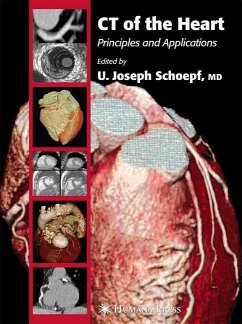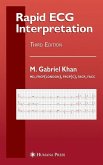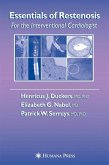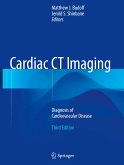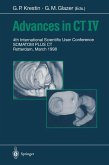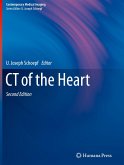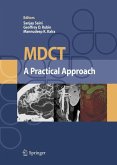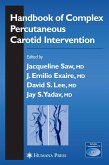Leading clinicians and researchers from around the world review the full scope of current developments, research, and scientific controversy regarding the principles and applications of cardiac CT. Richly illustrated with numerous black-and-white and color images, the book discusses the interpretation of CT images of the heart in a variety of clinical, physiological, and pathological applications. The authors emphasize current state-of-the-art uses of CT, but also examine developments at the horizon. They also review the technical basis of CT image acquisition, as well as tools for image visualization and analysis. The introduction of fast ECG-synchronized computed tomography (CT) techniques enables imaging of the heart with a combination of speed and spatial resolution unparalleled by other noninvasive imaging modalities. Applying these modalities for the evaluation of coronary artery disease is a topic of active current research. Coronary artery calcium measurements are investigated as a marker for cardiac risk stratification. With contrast-enhanced CT coronary angiography, coronary arteries can be visualized with unprecedented detail, so that noninvasive stenosis assessment appears within reach. With increasing accuracy CT enables evaluation of coronary artery bypass grafts and stents. The cross-sectional nature of CT may to some degree allow noninvasive assessment of the coronary artery wall. CT for evaluating cardiac perfusion, motion, and viability is being investigated.
In CT of the Heart, leading radiologists, cardiologists, physicists, engineers, and basic and clinical scientists from around the world survey the full scope of current developments, research, and scientific controversy regarding principles and applications of cardiac CT. Richly illustrated with numerous black-and-white and color images, the book discusses the interpretation of CT of the heart in a variety of clinical, physiologic, and pathologic applications. The authors emphasize current state-of-the-art uses of computed tomography, but also examine emerging developments at the horizon. They review the technical basis of CT image acquisition as well as the tools for image visualization and analysis.
Meticulous and comprehensive, CT of the Heart authoritatively defines the current status of computed tomography of the heart, offering a truly balanced view of its technology, applications, significance, and future potential.
In CT of the Heart, leading radiologists, cardiologists, physicists, engineers, and basic and clinical scientists from around the world survey the full scope of current developments, research, and scientific controversy regarding principles and applications of cardiac CT. Richly illustrated with numerous black-and-white and color images, the book discusses the interpretation of CT of the heart in a variety of clinical, physiologic, and pathologic applications. The authors emphasize current state-of-the-art uses of computed tomography, but also examine emerging developments at the horizon. They review the technical basis of CT image acquisition as well as the tools for image visualization and analysis.
Meticulous and comprehensive, CT of the Heart authoritatively defines the current status of computed tomography of the heart, offering a truly balanced view of its technology, applications, significance, and future potential.
From the reviews: "The entire contents-from the introduction about the past, present, and future of CT of the heart through the technical underpinning of the method, and through various clinical, physiologic, an d pathologic applications of CT in studying the heart-art meticulous and comprehensive. This book fills and immense need"-Foreword by Alexander R. Margulis, MD, DSc., Weill Medical College of Cornell University"...state-of-the-art text on computed tomography of the heart." - Texas Heart Institute Journal"This excellent, new, profusely illustrated book demonstrates state-of-the-art imaging of the heart and also provides appropriate comparisons with the results from magentic resonance and ultrasound imaging methofs." - Comprehensive Therapy "This book on a hot topic contains 38 chapters by 62 contributors. The illustrations are superb. The book will be very useful for those in this field." (American Journal of Cardiology, June, 2007)

